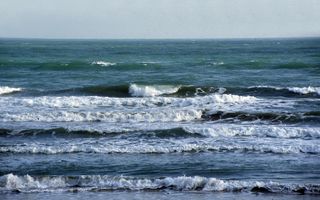(Finance) – Un Mediterranean Sea increasingly hotter, now a real hotspot of climate change. This is what is described in the new WWF report “The breath of the oceans” launched in view of the World Oceans Day which will be celebrated on June 8th all over the world which also opens the phase of the WWF Our Nature campaign in defense of the oceans which will see GenerAzioneMare active throughout the summer with volunteers, researchers, sailors, fishermen, divers and freedivers engaged in collective defense of our Blue Capital with a busy calendar of events that will be launched in the next few days.
“Due to the absorption of excess heat caused by the overheating global, the oceans have been experiencing a constant increase in temperature since the 1970s – explains the WWF –. In the period 2011-2020 the temperature it underwent an average increase of 0.88°C compared to the period 1850-1900. Projections indicate that this trend will continue. In April 2023, in fact, the average sea surface temperature reached a new record of 21.1°C.”
“The phenomenon has already had significant and, in some cases, irreversible impacts on marine ecosystems throughout its entire extension, generating significant consequences on crucial economic sectors such as fishing and tourism, as well as on our health and nutrition – he continues –. However, the most significant impact is on the key role that the oceans have for the thermoregulation of the global climate (with the system of ocean currents, known asConveyor Belt” or “Thermohaline circulation” which transports warm waters from tropical regions to higher latitudes, where they cool, sink and return to the tropics in a continuous cycle), the production of oxygen (50% of the oxygen generated on our planet, largely attributable to marine phytoplankton) and the absorption of carbon dioxide (every year about a quarter of the carbon dioxide that is emitted, corresponding to at least 30% of all CO2 emissions generated by human activities worldwide)”.
“Under the weight of the effects of global climate change the ‘breath of the oceans is increasingly in trouble: urgent action is needed to reduce further greenhouse gas emissions and to increase the resilience of the marine ecosystem to the impacts of climate change, protecting biodiversity”, underlines the WWF.
